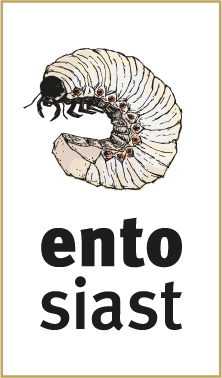The InBiRa insect biorefinery receives €3.9 million in funding from the EU and the state of Baden-Württemberg as part of the EDRF "Bioeconomy Bio-Ab-Cycling" program.
As one of five pioneering projects for biorefineries, the InBiRa insect biorefinery is receiving around 3.9 million euros in funding from the EU and the state of Baden-Württemberg. The Fraunhofer IGB is leading the pioneering project. With the help of larvae of the black soldier fly, residual streams and waste are to be recycled into high-quality products in the institute's pilot plant halls in Stuttgart-Vaihingen.
Larvae of the black soldier fly have long been the focus of various applications in terms of the circular economy. They are regarded as sustainable suppliers of raw materials, efficiently converting residual materials such as food waste and leftovers into high-quality body protein, fat and chitin. The raw fat can then be used to produce lubricants, fuels and cleaning agents, for example. The insect protein can be used to produce binders, adhesives and coating materials, among other things. Chitosan, a chemical derivative of chitin, is considered a versatile and degradable biopolymer.
Thus, the intelligent linking of biology and technology enables sustainable circular bioeconomy. Following extensive test runs of the individual processes, pilot and demonstration plants are now to be linked to form a large refinery.
The Baden-Württemberg Ministry of the Environment is funding the development of various types of biorefineries as part of the ERDF "Bio-Economy Bio-Ab-Cycling" program. A total of around 19 million euros from the European Regional Development Fund (ERDF) and state funds are being made available for five projects. With the aim of driving innovation forward, the funding program is accompanied by the Biorefineries Expert Initiative. The initiative brings together partners from the various projects as well as experts, companies and interested stakeholders.
Sources
- Ministry for the Environment, Climate and Energy Management Baden-Württemberg. 02.03.2022 https://um.baden-wuerttemberg.de/nc/de/service/presse/pressemitteilung/pid/efre-foerderprogramm-biooekonomie-bio-ab-cycling-fuenf-modulare-bioraffinerien-erhalten-foerdermittel/
- Fraunhofer Institute for Interfacial Engineering and Biotechnology IGB. "InBiRa - the insect biorefinery: from the utilization of organic residues and waste to the manufacture of products". https://www.igb.fraunhofer.de/de/referenzprojekte/inbira-insektenbioraffinerie.html



